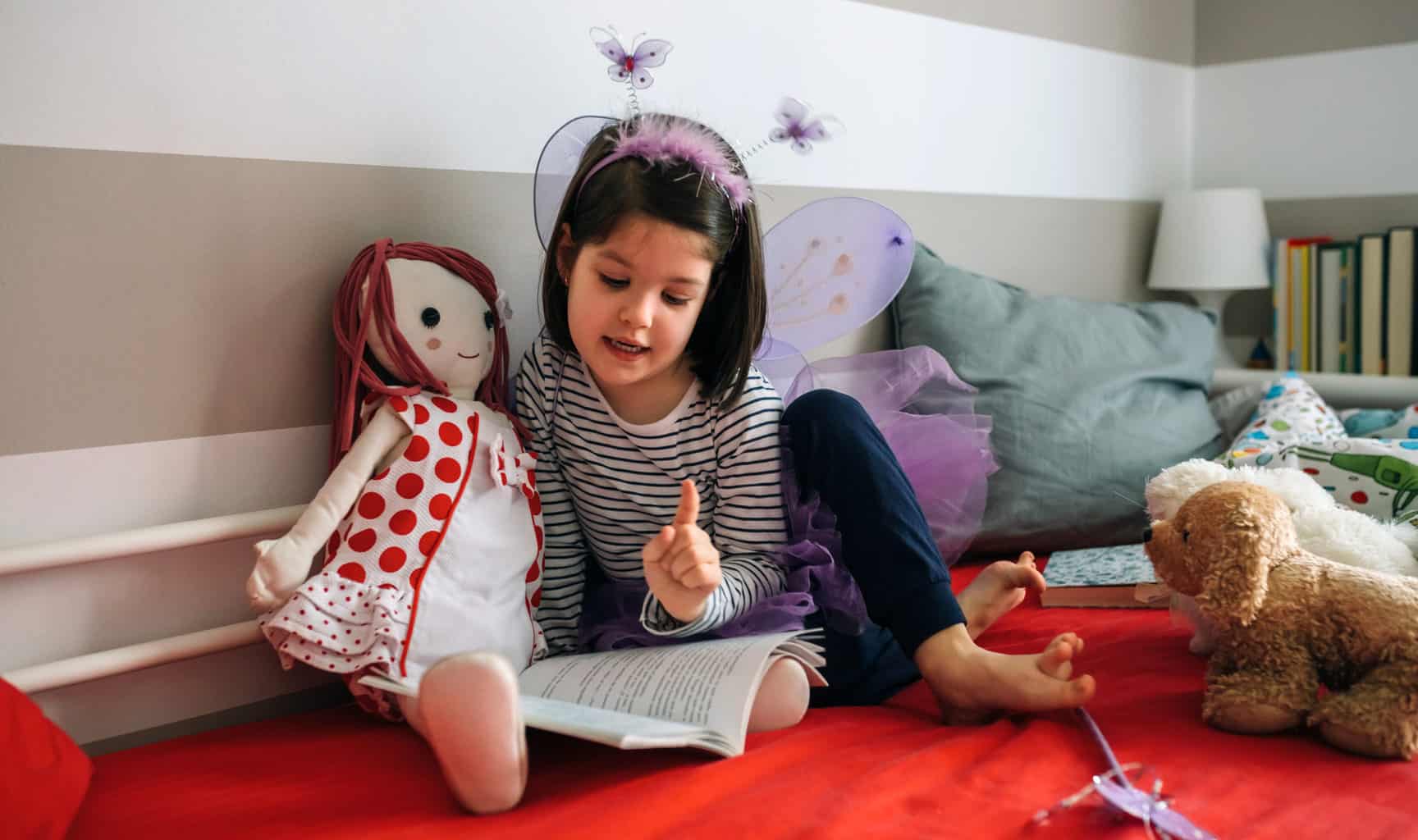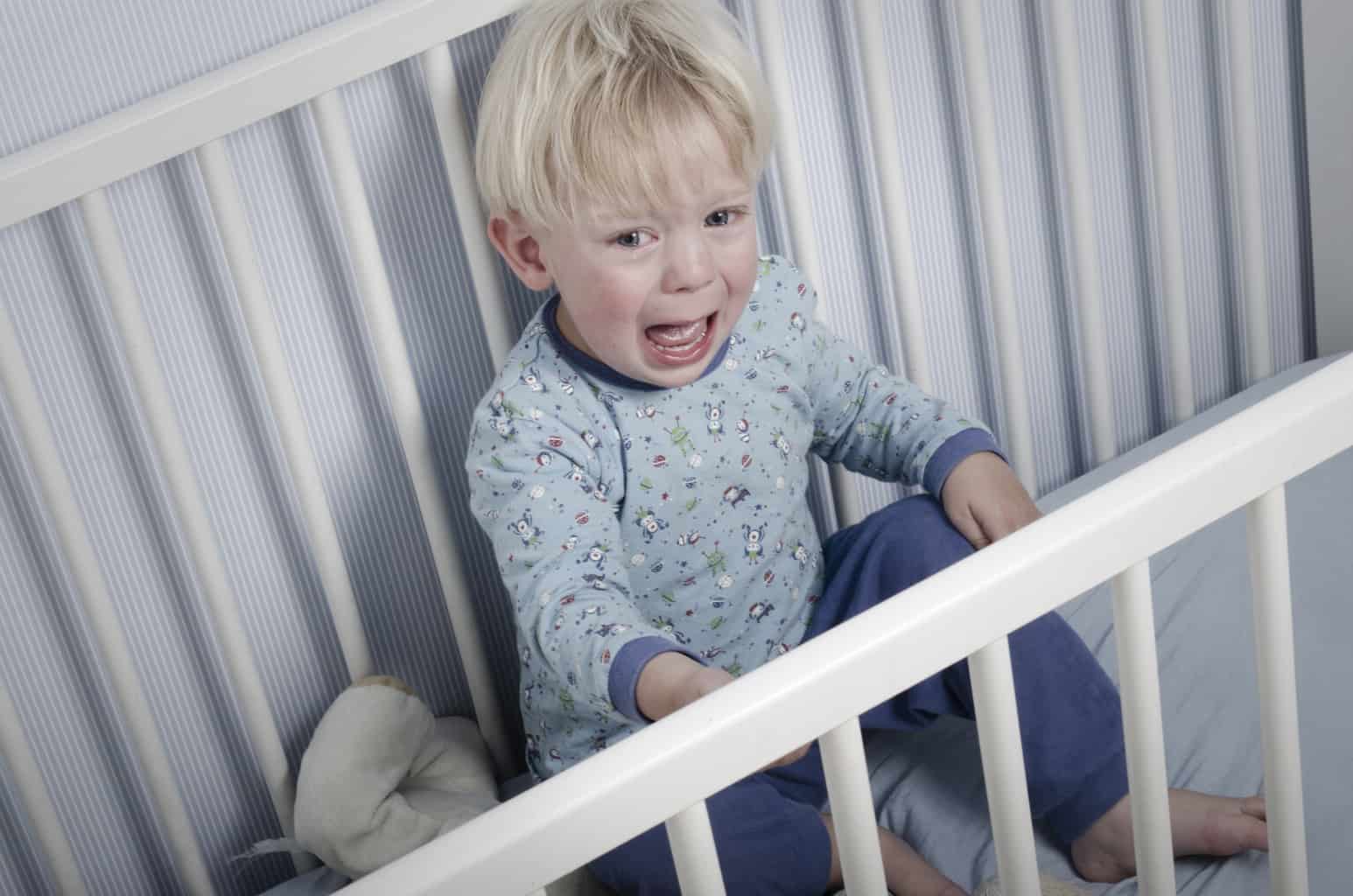Late Talkers & How To Help Your Toddler With Speech Therapy At Home
Guest Post by Sasha Correia M.S. CCC-SLP
It’s the most rewarding thing as a parent to hear those long-awaited words when your child first talks. And, sometimes it’s not what we expect! I read an article in Parents magazine about the funniest and most unusual first words reported by moms. Some of the first words I thought were funniest were: “Cool, “OK’, and “Bob”. Haha, our kids definitely have their own agenda! If your child is a late talker, you may have to wait a bit longer for one of these gems to pop out. The good news is, there are a great many things you can do to help your late talker at home!
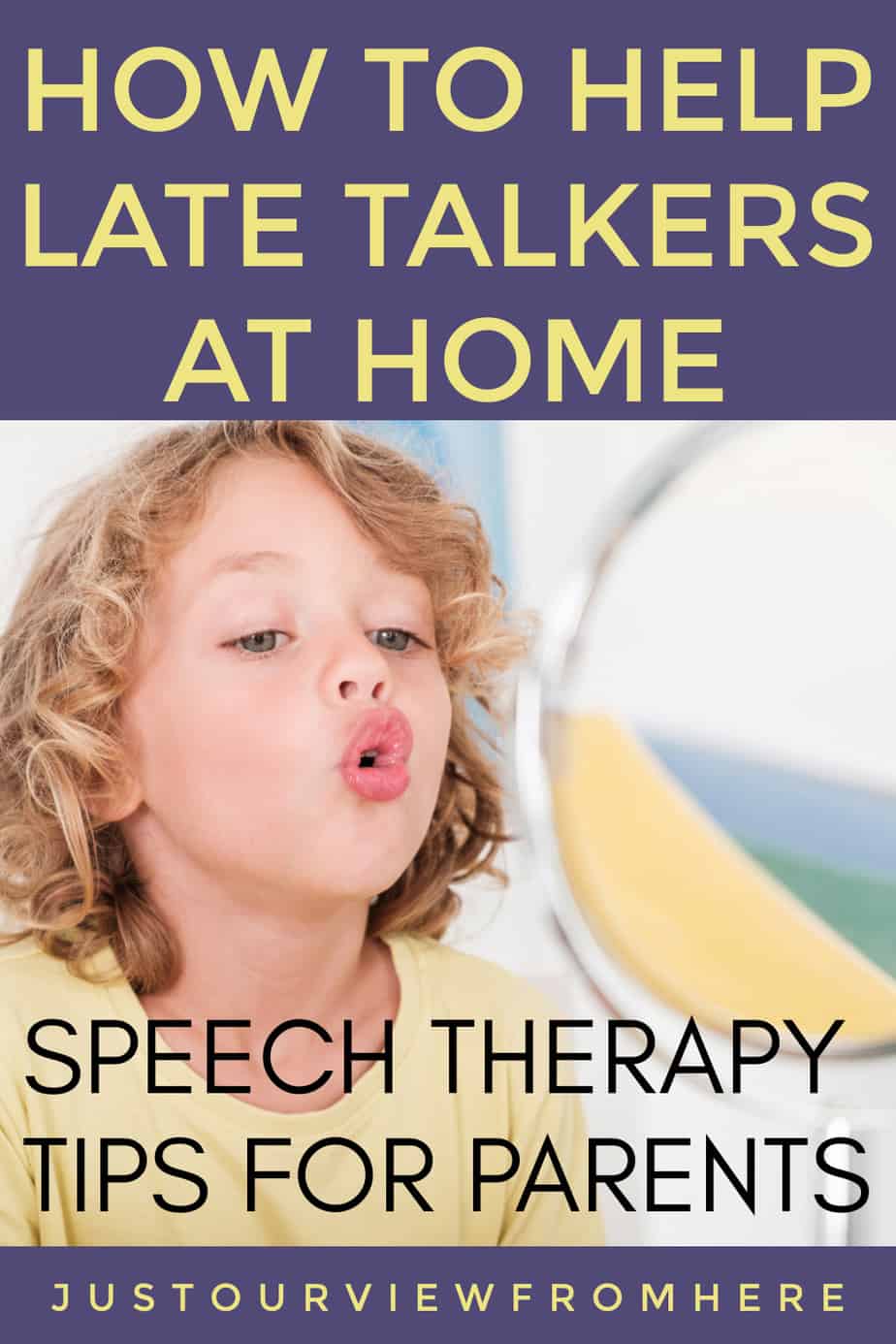
As parents, we get so focused on ‘When will my child talk?’ For most kids, those first words will come somewhere between 10-14 months. But what if they don’t?
Some of my blog posts contain affiliate links, from which we may receive a small commission at no additional cost to you. You can view our disclosure and privacy policy here.
Late Talkers: When do you know if you should worry or get your child into speech therapy?
We will go over:
- When to be concerned- is your child a late talker?
- How do you know if your child is ready to talk?
- How can you help your late talker at home?
Is your child a late talker?
If you just do a search on the internet, you will get a LOT of information, and some of it is conflicting.
Of course, there is a range, and every child is different.
But, there are certain milestones that most children meet, like how many words are expected at each age…and if your child is falling outside of the range of what is typically expected, your child may be a late talker.
To add to the confusion when you are looking up how many words your child should have at what age…. It doesn’t help that even the developmental charts you can find online say different things. So, how are you supposed to know?!!
Let me explain…
Some toddlers are “late talkers”, meaning they have met other developmental milestones, except for talking.
What is a late talker?
According to the American Speech-Language-Hearing Association (ASHA), “An extensively used set of criteria for LLE is an expressive vocabulary of fewer than 50 words and no two-word combinations by 24 months of age (Paul, 1991; Rescorla, 1989).
Keep in mind, this is used as criteria to define what a ‘late talker’ is, but this does not mean that 50 or more words at 24 months is considered typical.
Actually, most toddlers with typical speech and language development have between 200-300 words by 24 months!
So, the reason there seems to be so much conflicting information on those charts is because the ‘cut off’ ages are sometimes used, and then other charts list the ‘typical range’ of words per age.
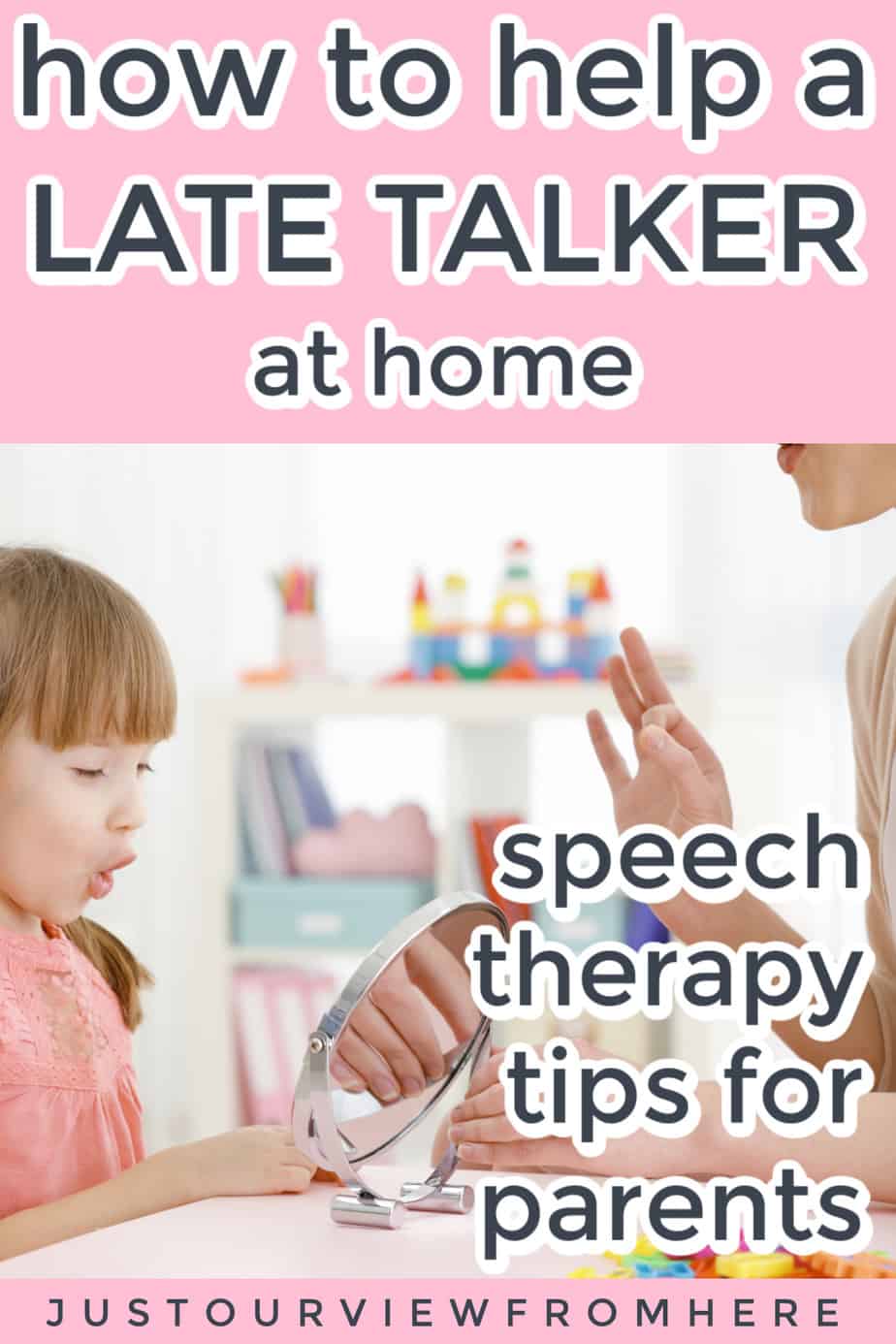
Is it ok to wait?
It can be confusing as a concerned parent to figure out what to do and when to get help if you think your child might be a late talker.
There is the ‘wait and see’ approach.
This is also a common one from well-meaning friends and family who say, “My child didn’t talk until age 3 and he was fine!” or, ”Einstein didn’t talk until age 5 and he was a genius!”
There are always exceptions, but the problem with waiting when you have a late talker, is that we don’t know which kids will and which kids won’t catch up.
Even though about half of late talkers will catch up, some will not. Being a late talker can, for some kids, lead to later difficulties with language or learning impairments. And, the earlier you start working on things with your child, the better!
If you remember one thing from this blog post, I hope it’s this: Don’t Wait!
If you have concerns, there is probably a good reason you are concerned. Trust those mom (or dad) instincts!
So, if you are concerned and you want to know what to do, here is what you need to know.
How do you know if your child is ready to talk?
It’s easy to forget that communication is more than talking!
And, did you know there are certain communication skills that your child needs before they will be able to talk and use lots of words?
So, make sure you look at your child’s overall communication skills (which includes a lot more than just the words they say) to determine if your child is a late talker or if there are other concerns in their development.
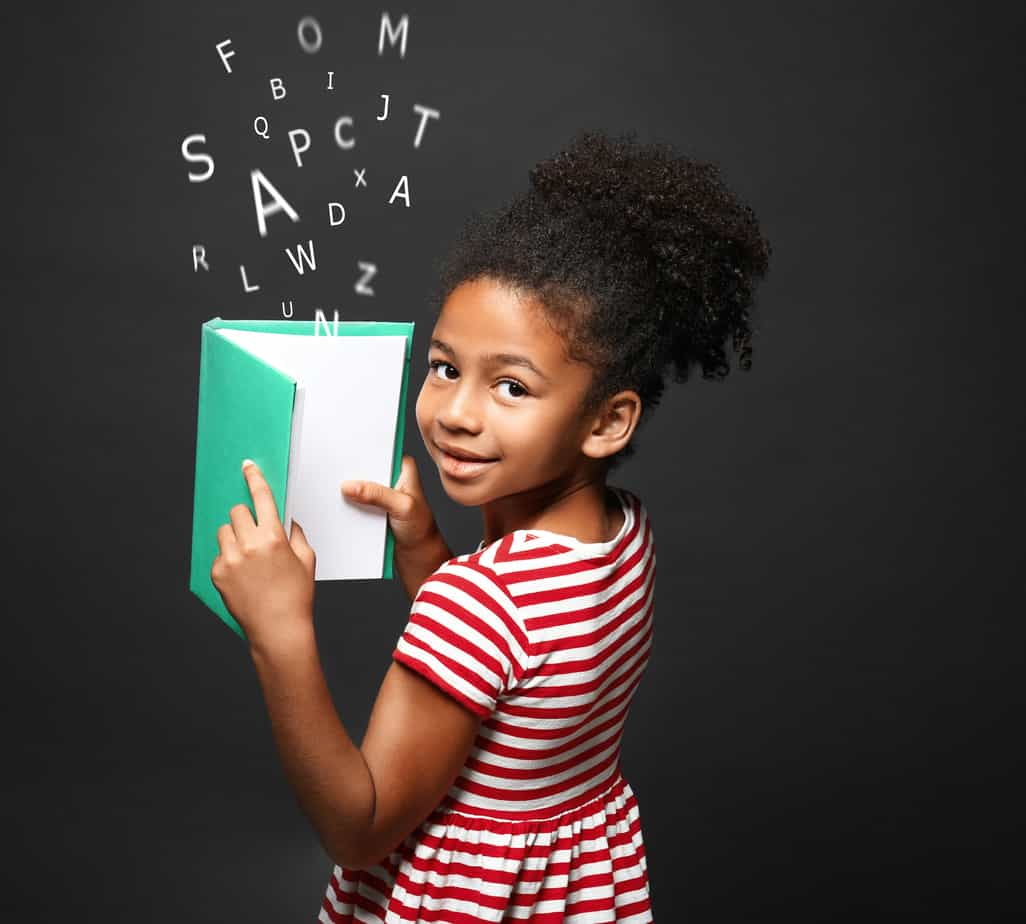
What other communication skills are we talking about?
There are a lot of things your child does and actually needs to be able to do before saying their first words.
Play
How does your child play? Do they play with toys appropriately? (Roll a car, feed a doll, roll a ball, etc..) Will they interact & with you or others? Does your child stay with an activity for at least several minutes at a time?
Social interaction
Does your child look at you, smile, laugh, seem to enjoy interacting with you and other familiar people? Does your child respond to you in some way (verbally, or non-verbally)?
Using gestures
Does your child seek out your attention and ‘initiate’ communication with you in some way (Pull your arm, reach for you, point at things to show you?) Does your child imitate and use gestures like (shaking head yes/no, or wave hi and bye)?
Vocalization
Does your child ‘babble’ and have lots of non-word vocalizations? Does your child use sounds to get your attention or have their own ‘language’ or seem like they are ‘talking’ even though the words are not recognizable yet?
Related: 2 Year Old Talking Gibberish? Here’s Help
Understanding
Does your child hear and understand words, follow simple directions that you say? (Get your toy, come here, stop please), respond to their name?
In order for those first words to come, your child needs to already have the skills above.
If your child is not doing the above things, and is 12-18 months or older, it is important to rule out other issues that may be contributing to why your child is not talking and you should refer to your doctor. You should also rule out any hearing difficulties that may be impacting your child’s speech.
Ok… so if you do have a child who is a late talker and does have the skills listed above, then, you know they are ready to talk! So, what can you do at home to help?
How can you help your late talker at home?
There are a lot of things you can do to help jumpstart communication and get your child talking!
Your child may be behind for their age, or maybe you are waiting for an evaluation and you want to know what to do to help at home…
There are simple, effective techniques that you can do at home to help your late talker. It’s best and most effective if you do these things daily. Don’t worry! You don’t need a lot of extra time to do these things – because who has extra time with a toddler running around the house?
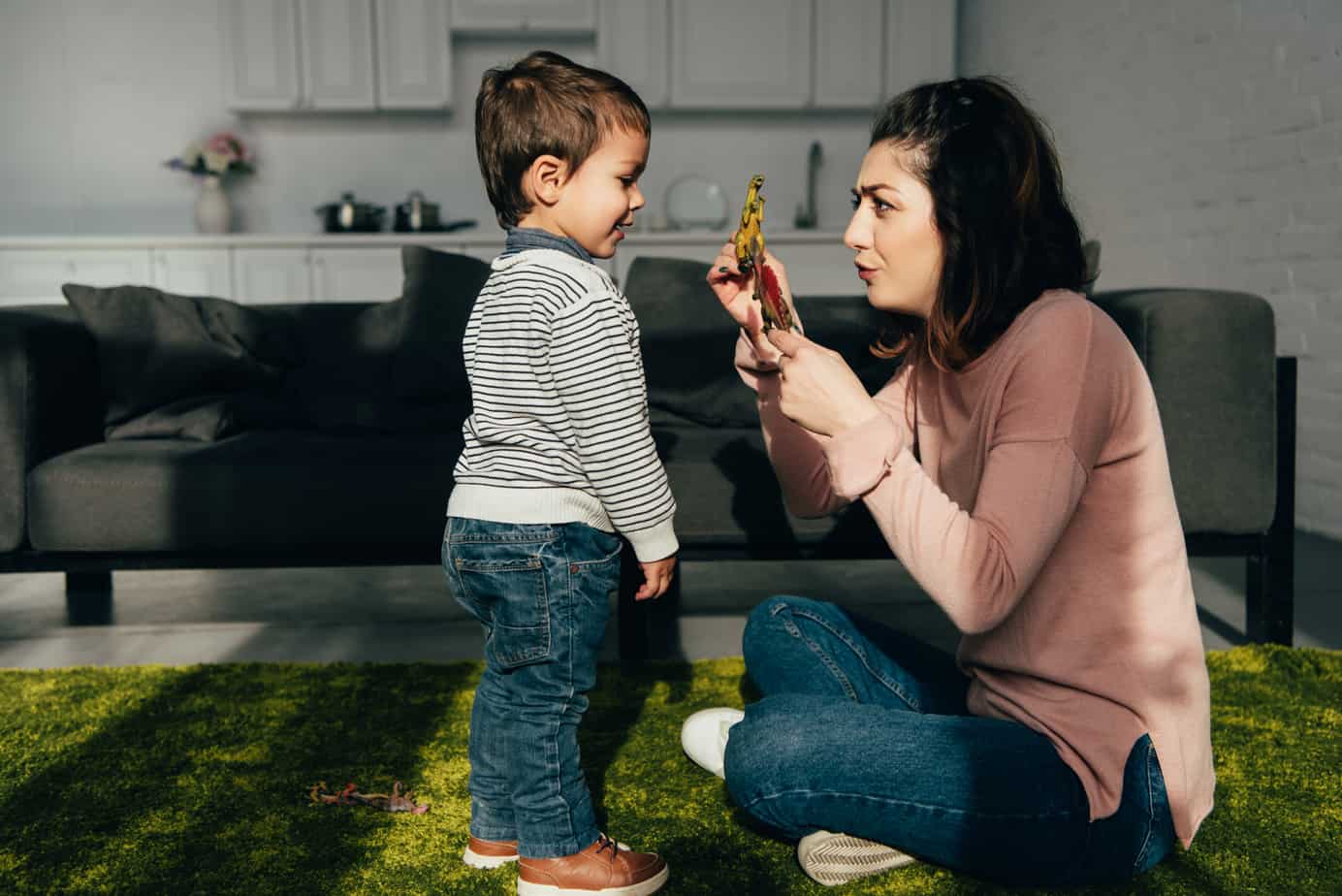
Just add these techniques to your daily routine every day, and over-time, you will start to see your late talker progress!
Model
Your child needs many opportunities to hear the same words over and over, and also to hear the words in the correct context to learn new words and to develop speech and language skills.
Modeling includes talking in sentences and phrases during everyday routines and also saying target words in context. When you are teaching your child new words, modeling specific targeted words in the context of daily routines can be a powerful way to teach your child new words and expand his/her vocabulary.
If your child looks up at you with his arms up to hold him and you know he wants you to pick him up, you can pause and say, “up?” “Do you want up?” Then pick him up. Over time, after hearing this every time he wants you to pick him up, he will catch on and may start to say it!
When you are modeling target words for your child, keep in mind, you want to model target words for your child that are:
a) appropriate for their level
b) motivating to say
c) related to everyday activities
Think of everyday routines where you can incorporate this. If your child is eating and you know they want more, you can ask, “more?” “Do you want more? “ and then give them more food. “More” is also a great sign to teach if your child is not yet talking.
Are there times your child is frustrated or trying to gain your attention, but does not yet have a word to use?
Are there times your child is using ‘gestures only’ and you can pair that gesture with a specific word that you can teach your child?
Hint: it is more effective to focus on simple action words and things/people in your child’s everyday environment that your child will be motivated to say (eg. mama, dada, doggie, hi, bye, up, down, eat, etc…) rather than teaching concepts like colors, numbers,etc..
Follow your child’s lead
Observe your child to see how they get their needs and wants met. Does your child: Vocalize, scream, babble, pull you to things?
How does your child initiate communication with you and other family members?
Look at how your child initiates communication with you when you aren’t prompting them. This will give you clues as to how you can start molding the things they are already doing into a higher level of communication (like going from saying, “uh,uh” when they want milk, to using a sign, or saying, “mi” for milk).
So, start with what your child is already doing, what your child is already paying attention to, and what your child is already trying to communicate with you.
If your child whines to let you know that they are all done eating, try adding a gesture, sign, or word (like ‘all done’) and model this whenever your child whines to tell you they are done eating.
Over time, your child will learn this and hopefully start gesturing, signing or saying the word instead of whining when ‘all done’.
Watch & Wait
Remember to pause in anticipation during your daily routines to allow your child to have a chance to talk.
For example, if you have been modeling the word, ‘up’ for your child, the next time your child wants you to pick them ‘up’, you can wait for a second or two to give him an opportunity to say the word, but don’t wait so long that they get frustrated… you know your child, so pay attention to what works for him or her. And, if they don’t say the word, just model the word ‘up’, pick up your child, and then try it again next time.
Your child also needs to know they have a ‘turn’ during communication or even during playing.
Example: when you are playing with your child, and want them to do something, like throw you the ball, look at your child, hold your hands up, and wait expectantly for them to throw it to you. Then, if they don’t, show them what to do.
When talking to your child, make sure you pause and give your child time to respond (even if their response is babbling, or nonsense words) – make it fun, wait….and take turns – this counts as communication!
Expand
When your child says something, you repeat it back, but then add to it to give your child a model of a more complex skill.
You should be modeling one small step above what your child does. For example, your child points and says, “Doggy!” You say, “Hi Doggy!”. So, you added one word to your child’s single word phrase to model at a slightly higher level.
When you are using this technique, try adding a word to what your child says and make sure it’s a word that your child understands. This will make it more likely for your child to say it over time. For example, if your child says, “more” when wanting more apple, you would say, “more apple”, as a model and then give your child more.
It’s also a good idea to repeat your model more than one time. In the ‘apple’ example, you could keep going and say, “More apple? Oohh, apple, you want more apple! Here’s more apple.” In this example, notice how many times you are repeating the target words “more” and “apple” for your child. This will help greatly in your child’s ability to understand, learn, and eventually say new words.
Take Turns & Respond
When your child tries to communicate with you (gestures, verbalizations, babbling, words, etc.), look and respond to your child in some way. Your child needs to know that their communication attempts are being heard and are successful. They also need to learn how to ‘take turns’ in a conversation! I know you can’t do this every single time your child makes a noise or wants your attention…. No one could!!
But, think about the routines in your daily schedule where you can include your child in what you are doing. Example, while you are cleaning or cooking, and your child is playing near you, you can respond to your child’s babbles with, “Yes, I hear you! What else?”
Try to find some quiet one-on-one time each day where you can really focus on responding to your child’s communication attempts. If you have multiple kids, maybe this is during a meal when you have time to sit down and feed your little one, or maybe it’s during bath time or reading time.
These times are so important for communication!
Reading is especially important and great for developing speech and language skills.
Try these things to work on speech and language skills when reading with your child:
- Pause throughout the book to comment, ask questions, point to pictures
- Take time to not just read the words in the book, but look at the pictures together, see what your child finds interesting
- Name pictures in the book
Related:
- Reading Tips For Preschool Parents
- Great Read-Aloud Books For 2-3-Year-Olds
- 30 Best Books To Read With Your Toddler
Play & Have Fun
Play time is so important and one of the most motivating times for your child to learn to talk. Because… it’s fun!

Be animated and silly with your child. Do something unexpected to get them to initiate communication with you. Example: Your child gives you a train to play with him, and you put it on your head. See what your child does! It’s a great opportunity to get their attention and jumpstart talking!
You can really make a difference in your child’s skills over time when you do little things each day to encourage their speech and language development. If you aren’t seeing progress right away, be patient!
Your child needs many, many opportunities with words, gestures, and social interactions before talking. But, if you do this daily, you should start to see progress over time!
Remember to be at your child’s level, add these techniques to your daily routine, and have fun with your little one while working on these things… or should we say while playing together, because even though you are using specific techniques, it should always be fun and playful! And, who knows… maybe your child will be next on Parents’ ‘funniest first words list’ soon! 🙂
More Information for late talkers
If your child falls outside of what is expected for their age, make sure you get your child evaluated by a Speech Language Pathologist.
See PDF below for more information on hearing and speech skills expected and ideas to help at the ages of 1 and 2 years from ASHA campaign: identifythesigns.org
1-2 year old speech language development
How to get your child evaluated
It’s always best to err on the side of caution and have your child evaluated by a Speech Language Pathologist if you have concerns and get your child the help they need. Although there is a lot you can do at home to help, it’s best to do this along with speech therapy services.
In the US, you can get a free evaluation- If your child is younger than 3 years old, you can reach out to your state’s birth-3 program for an evaluation. If your child is 3 years or older, you can reach out to your local school district for an evaluation. You can reach out to a private speech pathologist for an evaluation at any age, and many take insurance.
In Canada, each province has its own programs available for residents and information for each is available upon a simple web search. In Ontario, the government website will inform you on how to contact your local Preschool Speech and Language Program for an assessment. There is no cost for this program and you don’t need to get a referral from your doctor. If your child is school-age, let their teacher know that you would like your child to be evaluated by a speech and language pathologist.
About Sasha
Sasha is a Speech Language Pathologist with over 18 years working in schools with kids of all ages. She is a mom with 3 kids and lives in the Pacific Northwest. She created www.schooledinspeech.com to help parents stop worrying and start learning speech therapy tips and tricks at home to get their child talking and their speech and language on track. Jumpstart your child’s progress with her free parent starter guide here: https://www.schooledinspeech.com/freeparentguideresource
Nap Time Activities For Non Nappers
Transitioning from Naptime to Quiet Time When the time comes for your toddler to drop…
When Your Child Has Haircut Phobia-This Too Shall Pass
How We Helped Our Son Overcome His Intense Fear Of Haircuts I had never seen…
How To Handle The 2 Year Old Nap Strike
When our son was 2, he decided that napping wasn’t all it was cracked up…
Terrible Twos And Other Stages Of Kidhood
Are The Terrible Twos REALLY All That Terrible? You’ve made it through the newborn stage,…
How To Teach Your Toddler Kindness And Empathy
Raising Kind, Empathetic Children Begins At Home Because Home Is Where We Learn Love Teaching…
Just Our View From Here is a participant in the Amazon Services LLC Associates Program, an affiliate advertising program designed to provide a means for sites to earn advertising fees by advertising and linking to Amazon.com.


